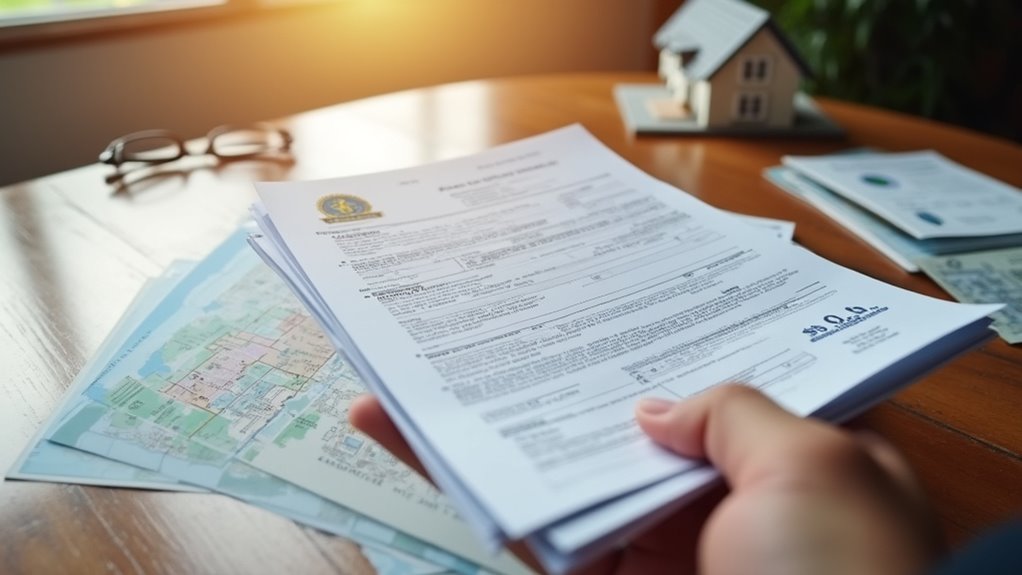Selling a house with a tax lien in Virginia is a tough situation for homeowners. Tax liens can scare off buyers and delay the sale. You may feel stuck and unsure about how to move forward.
These liens can make your house harder to sell. Buyers worry about legal issues and extra costs. Without a clear plan, you could lose money or even the sale.
You can sell a house with a tax lien in Virginia if you handle the lien before closing. You must deal with the tax debt and communicate with all parties involved. This ensures a smooth transfer of ownership. This blog will guide you through every step so you can sell your house and resolve the tax lien.
Key Takeaways
- Disclose all tax liens to buyers and include lien details in property disclosures and marketing materials, as required by Virginia law.
- Obtain a title search to identify all liens and confirm exact amounts owed before listing the property for sale.
- Negotiate with lienholders or tax authorities for payoff statements and explore payment plans or settlement options before closing.
- Use sale proceeds at closing to pay off the tax lien, ensuring clear title transfer to the buyer.
- Consult a real estate attorney or housing counselor to ensure legal compliance and a smooth transaction despite the lien.
Understanding Tax Liens and Their Impact on Property Sales

A tax lien on your property in Virginia means you owe unpaid property taxes. The government claims your home until you pay this debt. This makes it very hard to sell because buyers want a clear title. If you work with a local cash home buyer, you may be able to sell your home as-is, even if it has a lien, since these buyers often handle complicated title issues quickly.
A tax lien does not go away with time or if you transfer the property. If you want to sell your home, you must clear the lien first. Paying the debt, interest, and penalties will release the lien.
After you pay, you get a certificate showing the lien is gone. This lets you sell your property with a clear title. Understanding this process is important if you plan to sell with a tax lien. It’s also critical to be aware of disclosure requirements in Virginia, as you must inform buyers of any outstanding liens or issues that could affect the sale.
Common Reasons Tax Liens Are Placed on Virginia Homes
Virginia homes can have tax liens for several common reasons. The main cause is unpaid real estate taxes. Other causes include mistakes in tax assessments and missed payment notices.
Homeowners may struggle to pay property taxes due to financial problems. If someone misunderstands who should pay through escrow, they may miss payments. Clerical errors can also result in unpaid taxes. In some cases, a tax lien may impact your net equity and ability to use home sale proceeds to resolve outstanding debts.
If you ignore payment notices, a lien can be placed on your home. Tax liens can make it hard to sell your property. Quick action can help avoid more penalties or legal costs.
Virginia law requires homeowners to address unpaid property taxes and resolve any disputes before transferring ownership of the property.
| Reason | Emotional Impact | Financial Risk |
|---|---|---|
| Missed tax payments | Anxiety | Accruing penalties |
| Incorrect assessments | Frustration | Overpayment disputes |
| Ignored notices | Fear | Escalating legal costs |
Identifying the Type of Tax Lien on Your Property

To find out what kind of tax lien is on your property, check your lien documents. The lien type affects how you should respond. Each type has different legal effects and solutions.
You need to know which government agency placed the lien. It could be local, state, or federal. Check the amount owed and any extra penalties. When selling in challenging situations like tax liens, some sellers choose all-cash offers to ensure a fast, reliable closing and avoid complications from traditional buyers.
Look at when the lien was filed and if it has priority over other claims. Review your property’s past tax history for more details. The lien can lower your home’s value and affect your sale profits. Understanding payment priority for liens can help you plan the best approach to resolving your property’s tax issues before selling.
The Role of Title Searches in Discovering Liens
You need to order a title search to identify any hidden liens on your property, including tax liens that might obstruct the sale. Unresolved liens can stall or even derail your closing process, so it’s essential to address them early. By resolving title issues upfront, you streamline the transaction and protect both your interests and the buyer’s.
Consulting with professionals experienced in property condition and its effect on sale speed can also help you anticipate potential obstacles and ensure a smoother closing. Working with a trusted title company can help manage all closing details and ensure that any discovered liens are handled efficiently.
Identifying Hidden Property Liens
Property liens can be difficult to find without a proper search. A thorough title search is necessary before selling a house in Virginia. If you skip this step, you might miss liens that affect your sale.
Title companies can help you find tax liens, judgments, and unpaid bills. These hidden claims can lower your property’s value. Buyers may avoid homes with unresolved liens.
If a lien exists, disclose it before you start negotiations. This honesty can prevent legal issues later. Clearing liens ensures a smooth sale process.
Recent market trends may change how buyers view properties with liens. If you know about a lien, you can adjust your price. A clear title makes your home more attractive to buyers.
Impact on Sale Process
A title search is important when selling a house in Virginia. It finds any tax liens or other legal claims on the property. If the search finds a lien, the sale process may be delayed.
The title company checks public records for unpaid taxes or debts. Buyers and lenders usually want proof that all liens are resolved. If you cannot clear a lien, the buyer might not want to continue.
Understanding the title search helps you prepare for questions about ownership and property debts. If you know about any liens, you can address them early. This can help prevent problems during the sale.
Resolving Title Issues
A title search finds problems that could stop your property sale. It checks for issues like tax liens and claims before closing. This protects both the seller and buyer from future trouble.
Title professionals review public records to verify legal ownership. If they find a problem, they help fix it before settlement. This makes the property title clear and ready to transfer.
A title search can also spot errors in property appraisal records. It checks if estate planning steps match the current title status. If any issues appear, early action ensures a smooth sale process.
Legal Implications of Selling a Home With a Tax Lien
When you sell a home with a tax lien in Virginia, you must understand how the lien affects your legal obligations and financial outcome. You’re required to disclose the lien to buyers, which can influence negotiations and contract terms. The tax lien will also impact your sale proceeds, as outstanding debts are typically satisfied directly from the closing funds before you receive any remaining balance.
In some cases, addressing outstanding debts is crucial before the sale can proceed smoothly, similar to the requirements for probate property sales in Virginia. Additionally, proper disclosure of violations and liens is essential to meet legal obligations and reduce the risk of future legal issues.
Understanding Tax Lien Consequences
A tax lien is a legal claim on your property when you owe unpaid taxes. If you try to sell a house with a tax lien in Virginia, you will face legal and financial problems. The lien must be dealt with before you can transfer ownership with a clear title.
Buyers often avoid homes with tax liens, which can make your property harder to sell. The property may lose value, and you might get less money from the sale. If the lien is not paid, the sale could be delayed or canceled.
Title companies will not provide title insurance unless the lien is cleared. If you resolve the lien, you can move forward with the sale. Market conditions may also affect how willing buyers are to purchase a home with a tax lien.
Disclosure Requirements to Buyers
If you sell a home with a tax lien in Virginia, you must tell buyers about it. State law says sellers must disclose tax liens before closing. Buyers need this information to understand any issues with the property’s title.
You must include the lien details in your disclosure forms. This is separate from telling buyers about repairs or defects found during inspections. If you hide a lien, buyers can end the contract or take legal action.
Sellers should keep all paperwork clear and current. If buyers know about the lien, they can decide whether to move forward. Full honesty protects both you and the buyer.
Impact on Sale Proceeds
A tax lien on your house in Virginia will lower the amount you get from the sale. The lien must be paid off at closing before you receive any money. If you do not pay the lien, the sale cannot be completed.
The escrow agent will use the sale money to pay the lien first. This means you will get less cash from the sale. Buyers may offer less because they see the lien as a risk.
A tax lien can make your home harder to sell. Fewer buyers may want to deal with the extra steps. Accurate pricing will help you set a fair price based on the lien amount.
Notifying Potential Buyers About the Lien
You must tell all potential buyers about a tax lien on your house in Virginia. This is required by state and federal law. Honest disclosure helps avoid legal problems and builds trust.
You should include details about the lien in property disclosures and marketing materials. If buyers ask questions, answer them clearly and explain how the lien may affect the sale’s timing. Buyers will think about the lien along with home staging and the neighborhood. Buyers interested in a quick transaction may also consider cash buyer marketplaces as a way to handle properties with liens more efficiently.
If you use written disclosures, attach the lien documents to meet legal requirements. For verbal communication, explain any possible delays and how you plan to resolve the lien. You should also mention the lien in MLS notes and discuss its impact during open houses.
It is important to follow all legal requirements for property division and disclosure in Virginia to prevent future disputes and ensure the transaction is compliant.
Communicating With Lien Holders Before Listing

Before listing your home, contact every lien holder on your property. This includes the IRS or local tax offices. Clear communication helps you understand what you owe and the steps to remove each lien. Contact all lien holders, including tax offices, before listing your home to clarify what you owe and how to release each lien.
You should ask for a written payoff statement showing the current balance. Clarify any recent fees, interest, or penalties. If you have questions, request clear instructions on how to pay off the lien. It’s also wise to review property maintenance standards required by Virginia law, as neglect can lead to additional penalties or complications during the sale.
Keep a record of all correspondence with lien holders. Confirm what documents are needed to release the lien and how long it will take. If you do this early, you can avoid delays during the sale.
The total lien amount may affect your home’s value and sale price. If there are liens, buyers will want proof they will be cleared at closing. Disclose lien details in your marketing materials for transparency.
It’s also important to understand how court approval before selling may be required in certain situations, as this can impact the timing and legal compliance of your sale.
Negotiating With the IRS or State Tax Authorities
If you have a tax lien on your home, you must work with the IRS or Virginia tax office. Contact them to discuss paying off the lien or getting it released. Negotiation is necessary before you can sell the property.
Gather documents such as a property appraisal and proof of home improvements. These show you are serious about selling for the best price. If you provide strong evidence, it can help your case.
Request a payoff statement to learn the exact lien amount. Be ready to explain how selling the house will pay the debt. If you cannot pay in full, suggest a payment plan.
Keep a record of every conversation and agreement. Clear and consistent communication is important during negotiations. Stay active and organized to improve your chances of success.
When negotiating, remember that full disclosure about known defects is required by Virginia law, so it is crucial to be transparent with both tax authorities and potential buyers during the process.
Options for Settling the Tax Lien Before Selling

A tax lien can delay or stop your home sale. You must settle the lien before you close the sale. Several options are available to help you resolve the debt.
First, confirm the exact amount you owe by contacting the lienholder. Add any interest or penalties to this amount. If you qualify, a tax exemption can lower or remove your tax debt.
A higher property appraisal may give you enough money at closing to pay the lien. You can also ask the tax authority for a payment plan. If possible, pay the lien in full before you list your home.
Other options include using sale proceeds to pay the lien at closing. You may also negotiate a lower payoff amount. Always check your property value to make sure you pay the correct amount.
Selling a Home With a Tax Lien: Short Sale and Other Alternatives
If you can’t clear the tax lien before selling, you’ll need to consider a short sale or negotiate alternative lien resolution strategies. You must coordinate with your lender and the tax authority to secure approvals and address outstanding balances. Understanding each option’s procedural requirements ensures you protect your interests and expedite the closing process.
Navigating Short Sale Process
A short sale can help you avoid foreclosure if your home in Virginia is worth less than your mortgage and has a tax lien. You must get approval from your lender and the tax authority before proceeding. If you do not secure this approval, the sale cannot move forward.
Gather documents that prove your financial hardship for the lender’s review. Written consent from all lienholders is necessary before listing the home. If you miss a required document, the process could be delayed.
Property staging can make your home more appealing to buyers. Home inspections may identify problems early and prevent surprises later. If you address issues before listing, buyers may be more willing to participate.
Work with real estate professionals who have short sale experience. Their guidance can help you meet all requirements and deadlines. If you follow these steps, your chances of a successful short sale will improve.
Exploring Lien Resolution Options
A tax lien makes selling your Virginia home more difficult. There are several ways you can resolve a tax lien besides a short sale. You should start by getting a property appraisal to know your home’s fair market value.
This value helps when you talk to tax authorities about settling the lien. If you qualify, a tax exemption or abatement may reduce or remove the lien. A tax professional can help you check if you meet the requirements.
You might also pay the lien from your sale profits or set up a payment plan. Some lenders allow the lien to stay attached to the sale proceeds instead of the property. Always get any agreements in writing before you finish the sale.
Navigating the Closing Process With an Active Lien

Selling a property with a tax lien in Virginia is possible if you address the lien during closing. The lien must be paid off from the sale proceeds before you receive any money. You must inform the buyer and the settlement agent about the lien details.
Check the exact amount owed with the county or city tax office. If you have a lien, disclose it in writing to everyone involved. The closing agent will use money from the sale to pay the lien first.
If you keep the property in good shape, you can avoid losing value before selling. Good maintenance helps prevent negotiation problems. If you wait for the right time to sell, you may get better offers. If you follow these steps, you can close the sale even with an active lien. Proper planning and communication are key.
How Real Estate Agents Can Help With Lien Issues
Real estate agents can help you deal with lien issues when selling a home. They know how liens affect property sales and can guide you through the process. An agent will explain your options and help you make informed decisions.
Agents help you set a fair price that considers the lien and attracts buyers. They can suggest the best time to list your property if you want maximum interest. Their advice can help you get more money from the sale, even with a lien. Agents guide you in pricing your home with a lien and timing your listing to maximize buyer interest and profit.
Agents work with title companies and talk to lienholders on your behalf. They help create contracts that address the lien and plan for its resolution at closing. If you want a smooth process, an agent keeps everyone informed and ensures legal rules are followed.
A skilled agent reduces your stress and avoids unnecessary delays. If you have questions or problems, they offer solutions and walk you through each step. With their help, you can sell your home successfully, even with a lien in place.
Protecting Your Proceeds and Avoiding Future Liens
To protect your sale proceeds and prevent future liens, handle your money carefully after selling a house with a tax lien in Virginia. Pay off any remaining tax debts right away. Make sure the lien is fully removed from your record.
If you plan to buy or renovate another home, keep all receipts for improvements. These records can help claim possible tax deductions later. Store documents in a safe place for future reference.
Talk to a certified tax advisor each year to review your taxes. Ask about any potential capital gains taxes from your home sale. If you owe property taxes, set reminders so you never miss a payment.
Check your credit report regularly for new liens or errors. Contact the IRS or Virginia Department of Taxation to confirm your lien status. Take quick action if you see any new issues.
Resources for Homeowners Facing Tax Liens in Virginia
Homeowners in Virginia with a tax lien can find help from several resources. The Virginia Department of Taxation gives details about tax exemptions and payment plans. Local legal aid and housing counselors can help you understand your options.
A real estate attorney can explain lien documents and make sure you follow state laws. If needed, a property appraisal can show your home’s fair market value. This helps when you talk to lienholders or set a sale price.
Senior or disabled homeowners should check for local tax exemption programs. These programs might lower your tax burden. Using all available resources can help protect your interests during the selling process.
Conclusion
If you need to sell a house with a tax lien in Virginia, taking careful steps is important. If you work with professionals and communicate openly, you can avoid many common problems. If you follow the legal requirements and negotiate with the tax authorities, you may protect your interests.
If you want a simple solution, we buy houses for cash, even with tax liens. If you choose a cash sale, you can avoid delays and close on your timeline. If you need quick results, this option may be the right fit for you.
If you are ready to move forward, we at Align Real Estate Solutions are here to help. If you contact us today, we can discuss your options and guide you through the process. If you want to sell fast and stress-free, let us provide the support you need.
Author
-

Zach Koops is co-founder and Real Estate Success Manager at Align Real Estate Solutions, serving homeowners across Virginia since 2024. With a passion for real estate and a heart for people, Zach has built his career around helping sellers navigate tough situations—foreclosure, inheritance, relocation, repair-overload—with clarity and compassion. He’s known for being straightforward, steady under pressure, and deeply invested in relationships. Outside of work, he spends his time as a husband and father, enjoys the outdoors in Shenandoah Valley, loves singing on stage, and constantly seeks growth through reading and new experiences.









